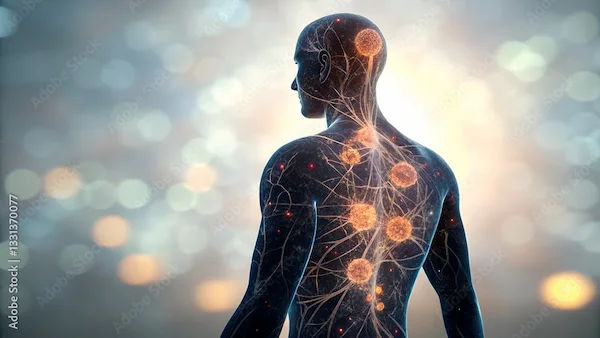Testosterone Testing: Purpose and Information
Discover why testosterone testing is done, what the results mean, and how it helps diagnose hormone imbalances in men and women.

Written by Dr. J T Hema Pratima
Reviewed by Dr. Shaik Abdul Kalam MD (Physician)
Last updated on 25th Aug, 2025

Testosterone is an essential hormone, primarily known for its role in male health, though it also plays a part in women’s well-being. If you’ve been experiencing symptoms like fatigue, low sex drive, or mood swings, your doctor might recommend a testosterone test to check your hormone levels.
What is Testosterone Testing?
A testosterone test measures the amount of this hormone in your blood. Testosterone is responsible for:
Muscle strength and growth
Bone density
Sex drive (libido)
Sperm production (in men)
Mood regulation
Energy levels
Low or high testosterone levels can affect your health, so testing helps doctors diagnose and treat hormone-related conditions.
Why is Testosterone Testing Done?
Your doctor may recommend this test if you have symptoms of low testosterone (hypogonadism) or high testosterone (hyperandrogenism).
Symptoms of Low Testosterone (in Men & Women)
Men:
Low sex drive
Erectile dysfunction
Fatigue and low energy
Reduced muscle mass
Increased body fat
Mood swings or depression
Loss of body/facial hair
Women:
Low libido
Fatigue
Irregular periods
Thinning hair
Weak bones (osteoporosis risk)
Symptoms of High Testosterone (Mostly in Women & Some Men)
Women:
Excess facial/body hair (hirsutism)
Acne
Deepening voice
Irregular periods
Male-pattern baldness
Men (rare, but possible):
Aggressive behavior
Excessive body hair
Acne
Conditions Linked to Testosterone Imbalance
Low Testosterone Causes:
Ageing (natural decline after 30)
Obesity
Diabetes
Pituitary gland disorders
Chronic illnesses (liver/kidney disease)
Testicular injury or infection
High Testosterone Causes (in Women):
Polycystic Ovary Syndrome (PCOS)
Adrenal gland disorders
Ovarian tumors
Get Your Health Assessed
How is the Test Done?
The test is a simple blood test, usually done in the morning when testosterone levels are highest.
What to Expect:
1. Preparation:
You may need to fast (avoid food) for a few hours.
Some medications can affect results, so inform your doctor.
2. Procedure:
A healthcare professional will draw blood from your arm.
The process takes just a few minutes.
3. Results:
Typically available within a few days.
Your doctor will explain what the numbers mean.
Understanding Your Results
Testosterone levels vary by age, gender, and health status.
Normal Testosterone Ranges:
Men: 300–1,000 ng/dL (nanograms per deciliter)
Women: 15–70 ng/dL
Low Testosterone (Men < 300 ng/dL, Women < 15 ng/dL):
May require testosterone replacement therapy (TRT) or lifestyle changes.
High Testosterone (Women > 70 ng/dL, Men > 1,000 ng/dL):
May need further tests to check for PCOS, tumors, or adrenal issues.
How to Manage Testosterone Levels?
Here’s how you can manage testosterone levels:
For Low Testosterone:
Exercise Regularly: Strength training boosts testosterone.
Eat a Balanced Diet: Include zinc (nuts, seafood), vitamin D (sunlight, eggs), and healthy fats (avocados, olive oil).
Reduce Stress: High cortisol (stress hormone) lowers testosterone.
Get Enough Sleep: 7-9 hours per night helps hormone balance.
Avoid Alcohol & Smoking: Both can reduce testosterone.
For High Testosterone (Women):
Maintain a Healthy Weight: Losing weight can help balance hormones.
Medications: Birth control pills or anti-androgen drugs may be prescribed.
Natural Remedies: Spearmint tea, flaxseeds, and a low-sugar diet may help.
When to See a Doctor?
If you have persistent symptoms like:
Unexplained fatigue
Low sex drive
Mood changes
Unexplained weight gain or hair loss
Consult a doctor to check if a testosterone test is needed.
Book a Test or Consultation with Apollo 24|7
If you suspect a testosterone imbalance, Apollo 24|7 makes it easy to:
Schedule a testosterone test
Consult an endocrinologist online
Get expert advice on hormone health
Conclusion
Testosterone plays a crucial role in overall health, and imbalances can affect your well-being. A simple blood test can help diagnose the issue, and lifestyle changes or medical treatments can restore balance.
If you’re experiencing symptoms, don’t ignore them—take the first step toward better health by getting tested and seeking expert advice.
Consult Top Specialists
Consult Top Specialists

Dr. Swathi Reddy Perugu
General Physician/ Internal Medicine Specialist
7 Years • MBBS, MD (General Medicine)
Hyderabad
Health plus, Hyderabad

Dr. Chethan T L
General Physician/ Internal Medicine Specialist
5 Years • MBBS, MD, DNB (General Medicine)
Bengaluru
Apollo Medical Center, Marathahalli, Bengaluru

Dr. Anshul Maheshwari
General Practitioner
5 Years • MBBS
Lucknow
Apollo 24|7 Clinic - Uttar Pradesh, Lucknow

Dr. Rajib Ghose
General Practitioner
25 Years • MBBS
East Midnapore
VIVEKANANDA SEBA SADAN, East Midnapore

Dr. Shakti
General Physician/ Internal Medicine Specialist
25 Years • MBBS, DNB, PGDHIVM, MRCP (UK)
Delhi
Apollo Hospitals Indraprastha, Delhi
(300+ Patients)





